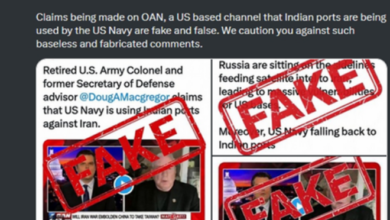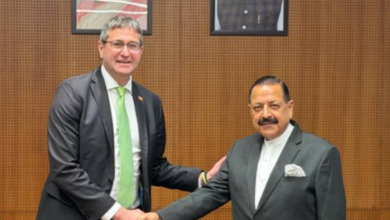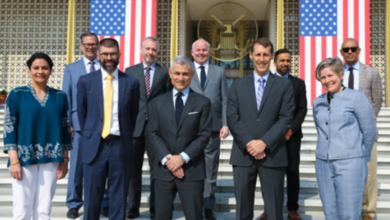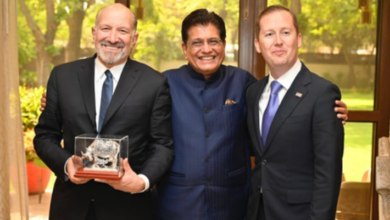U.S. Touts Role in India-Pakistan De-escalation at U.N.; India Reaffirms Conflict Was Resolved Bilaterally
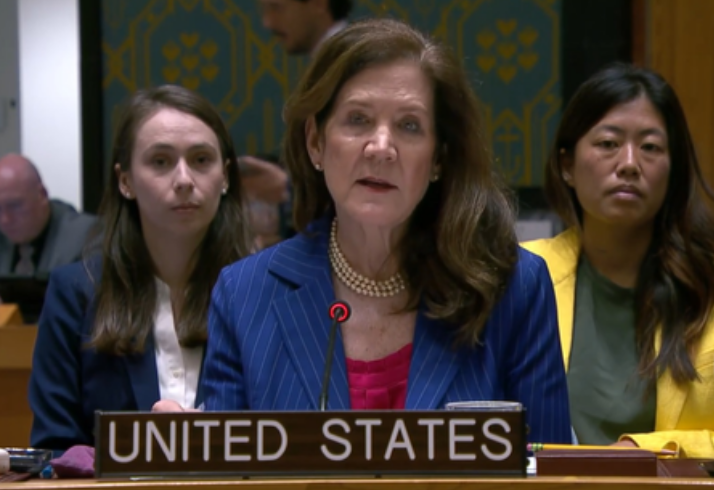
UNITED NATIONS– The United States cited President Donald Trump’s role in de-escalating the recent conflict between India and Pakistan at the United Nations Security Council, but India firmly maintained that the issue was resolved directly between the two countries—without any third-party mediation.
Speaking at a Security Council debate on “Multilateralism and the Peaceful Settlement of Disputes,” Acting U.S. Representative Dorothy Shea listed the conflict between India and Pakistan following the terrorist massacre in Pahalgam as one of three global crises de-escalated through “U.S. leadership” in recent months. Shea repeated a long-standing claim by Trump, stating, “The United States, under President Trump’s leadership, played an important role in encouraging the parties to reach these resolutions, which we applaud and support.”
India’s Permanent Representative to the U.N., P. Harish, rebutted the claim, clarifying that the cessation of hostilities was directly initiated at Pakistan’s request. “Operation Sindoor, having achieved its primary objectives, concluded with a cessation of military activities directly requested by Pakistan,” Harish stated.
He explained that Operation Sindoor was launched by India in response to the brutal killing of 26 civilians in Pahalgam by The Resistance Front (TRF), a terrorist group affiliated with Lashkar-e-Taiba and supported by Pakistan. The operation, Harish said, was “focused, measured, and non-escalatory,” and specifically targeted terrorist infrastructure in Pakistan and Pakistan-occupied Jammu and Kashmir.
Harish added that India’s military action was consistent with the Security Council’s own call to hold accountable the perpetrators, financiers, and sponsors of the Pahalgam attack.
The debate was presided over by Pakistan’s Deputy Prime Minister Mohammad Ishaq Dar. During the session, both Shea and Harish outlined sharply divergent accounts of the events.
President Trump has repeatedly claimed that he “stopped the war between Pakistan and India,” even asserting that a nuclear conflict was imminent and that he had intervened by threatening to block trade deals unless both sides backed down. Secretary of State Marco Rubio has echoed these remarks in recent weeks.
However, India’s Ministry of External Affairs has denied any such involvement. According to the ministry, Prime Minister Narendra Modi told President Trump during a phone call last month that there had been no discussion—formal or informal—about a U.S.-India trade deal being linked to de-escalation with Pakistan. “Prime Minister Modi clearly conveyed to President Trump that at no point during this entire sequence of events was there any discussion, at any level, on an India-U.S. trade deal, or any proposal for mediation by the U.S.,” the ministry said.
India further clarified that it was Pakistan’s own military leadership that requested the ceasefire. External Affairs Minister S. Jaishankar stated that Pakistan’s Director General of Military Operations, Major General Kashif Abdullah, contacted his Indian counterpart, Lieutenant General Rajiv Ghai, to request an end to hostilities.
In addition to India and Pakistan, Shea also cited the de-escalation of tensions between Israel and Iran, and between the Democratic Republic of Congo and Rwanda, as examples of successful U.S. diplomatic interventions under Trump’s leadership.
Last week, Secretary Rubio announced that the U.S. had officially designated The Resistance Front as a global terrorist organization, reinforcing Washington’s stated commitment to justice for the victims of the Pahalgam massacre. (Source: IANS)


